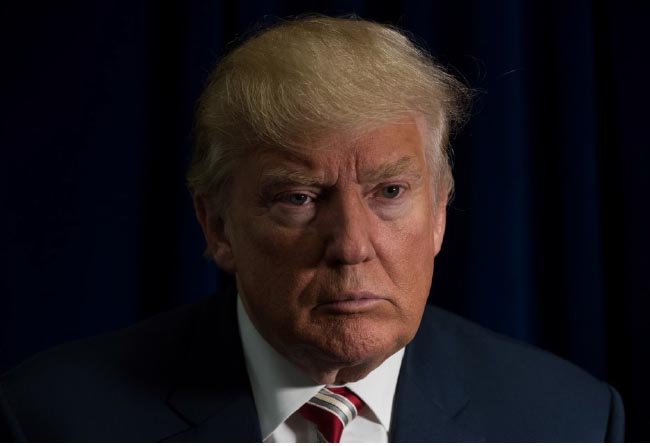Following the harsh stance of the US President Donald Trump on Pakistan and calling that “Pakistan often gives safe haven to agents of chaos, violence and terror” a cold war has been ushered in. The bonhomie between Islamabad and Washington crumbled. Trump’s strategy for the protracted war in Afghanistan is to increase military forces which has been deemed fruitless by Pakistani officials and political pundits who recommend pursuing the peace process instead.
After September 11, George W. Bush said that the war on terror would end only when “every terrorist group of global reach has been found, stopped and defeated.” Trump claimed in his Inaugural Address that he would “eradicate” “radical Islamic terrorism” “completely from the face of the earth.” In his address regarding the US strategy about Afghanistan, he maintained that “we will defeat them, and we will defeat them handily.”
He also pointed out the tragic aspect of war in Afghanistan and the sacrifices made by US forces so as to galvanize his nation. His threatening words against terrorist militants and their “safe havens that enable terrorists to threaten America” were highly strong. According to him, a hasty withdrawal will lead to horrible consequence and the US forces, along with its international allies, had to strip terrorists of their territory.
On the other hand, Pakistani Foreign Minister Khawaja Asif has said recently that the Trump administration’s “militaristic approach” in Afghanistan represented a failed policy and called for peace talks with the Taliban. He wondered how the US military approach could bear the desired result when it had not during the “surge” under the Obama administration with a force eight times as large as the one now planned.
In the meantime, the Taliban and other militant fighters continue spilling the blood of innocent individuals, including women and children, in the country and held out against the constant calls for negotiation. In short, the US seeks military deal, Pakistan urges for negotiation, and the Taliban continue war. Worst of all, both military deal and peace talks were proved abortive within the last sixteen years and the militant fighters intensified their attacks in the past two years. The third strategy that Afghanistan adopted was pursuing both military deal as a defensive strategy, rather than offensive one, simultaneously calling warring factions to come to negotiating table. Up to now, exerting both “hard power” and “soft power” came to stalemate.
To break the stalemate, Afghanistan and its international allies, along with neighboring countries that raise their concerns about instability in the country, will have to get to the bottom of the issue. Trump’s suggestion to break the deadlock is “stripping terrorists of their territory, cutting off their funding and exposing the false allure of their evil ideology”. These three solutions are highly significant and will necessarily break the backbone of terrorists, but the issue is how to exert them! Many words were spoken in combating terrorism but there is much to be done.
Now Pakistani officials suggest non-violent mechanism and pursing peace talks, the US authorities seek the policy of “an eye for an eye”, Afghan government adopted both the strategies without fruition, but the Taliban yield to neither – which seem really an unbreakable deadlock. The cold war is believed to exacerbate the issue and let warring parties to fish in the troubled waters.
The Taliban carried out guerilla attacks and fought for their ideology for more than a decade and half, now their incumbent leader fears that succumbing to peace talks will be a blow to their “jihad” and hard for them to justify their past. It is further believed that if Taliban’s leader Mullah Haibatullah agrees to hold negotiation, an overwhelming members of the Taliban will pledge allegiance to the self-proclaimed Islamic State of Iraq and the Levant (ISIL) group.
Being left with two choices, i.e., holding peace talks or facing military deal, the Taliban agreed with the latter as they never ceased war. Afghanistan will value the non-violent mechanism suggested by Pakistan if she vows with bona fide intention to persuade the Taliban to come to peace table. To put it succinctly, since the Afghan-Pak relations were in a state of flux, the two countries need to build trust. Kabul government has never closed the door for negotiation rather it frequently called warring parties to join peace process. This is proved by the establishment of High Peace Council (HPC) and its tireless efforts in this regard. Secondly, if warring parties refuse the first choice, the military deal suggested by US President will be the only way left before the militants. Military action must target the Taliban’s sanctuaries and the root causes of militancy, mainly their financial budgets. All countries concerned over the issue of militancy need to play their role in combating terrorism. In brief, the strategy of war must be changed through not only targeting militants but also their safe havens and motivating factors.
Home » Opinion » The Unbreakable Deadlock of ‘War on Terror’
The Unbreakable Deadlock of ‘War on Terror’
| Hujjatullah Zia

